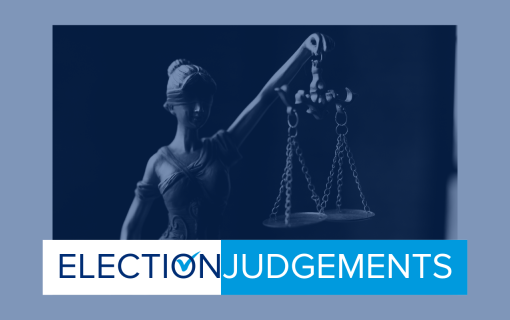Rafael López-Pintor: Decades Devoted to Democracy
Rafael López-Pintor, recipient of IFES’ 2009 Joe C. Baxter Award, is a pioneer in election assistance, beginning his career in post-Franco Spain in the 1970s and broadening it worldwide since the end of the Cold War. A long-time IFES collaborator, he has worked in almost every region of the world, supporting citizens’ rights to have a voice in the way they are governed.
In this interview, he talks with IFES about preparing for pivotal elections, the evolution of election assistance and why voting matters.
When did you begin working with IFES and how many years were you with the organization?
My first contact with IFES was in 1992 in Albania just before the first general elections after the fall of the Communist regime. I was there as a United Nations (UN) consultant, and IFES sent two consultants to support those elections. Within that extremely rarified atmosphere, with just the three of us as international support personnel, we developed a relationship and worked together closely. IFES was a new organization and I could sense their spirit of democracy support.
In 1996, I was invited by IFES to head a complex project supporting a prospective municipal election in Palestine, which would take place many years later. At the time, IFES was the main international organization focusing on election administration. This was my first mission with IFES in a strict sense. Following that, I collaborated with IFES here and there, mainly on short-term consultancies (in Africa, Middle East, Latin America or Eastern Europe) until 2000 when I researched and wrote the first global book on electoral management bodies as institutions of governance.
This led to long-term endeavors, including time as Chief of Party in Nicaragua and Senior Adviser for Election Administration. All in all, I have been tied to IFES for almost 20 years.
When and how did you get into election assistance?
On a global scope, I have been involved from the very beginning, starting in the post-Cold War era. But before 1989, when I was called by the UN to prepare an electoral mission in post-war Nicaragua, I was always dealing with electoral support as a field of study.
My first book, which I produced in Chile, when I was 26 in 1967, was on municipal elections. Later, I was involved in election support as a professional during the transition in my own country, Spain, in 1976. I was also involved in some of transitional elections in Latin America in the 1980s, like Chile.
You are a pioneer in this field. How has it evolved over the years?
If you look at elections in the realm of academia, it focuses on the same issues it did decades ago: voting behavior, in terms of voter turnout, and voting preferences.
As a field of practice and international assistance, it has evolved enormously in the last 20 years. Assistance has moved from procurement activities into technical assistance and capacity building. In electoral operations, electoral procedures have improved under both domestic developments and international support. In election observation, bigger missions have evolved into smaller, more focused operations and from electoral-event-driven to electoral-cycle-observation.
In general, dependency on international assistance in new or emerging democracies has moved from material to more refined technical support. These are main trends, but it is not implied that traditional forms of assistance have totally disappeared, especially in procurement, which is so closely related to the economic needs of countries.
What has been IFES' contribution to election assistance?
Among a variety of election-related activities of which IFES has been involved, there is no doubt that IFES’ specialty is its professional capacity and credentials in supporting the work of electoral authorities or election management bodies. IFES is most recognized and praised for its work in supporting election management, may it be through conceptualization, planning for elections or assisting with core operations.
What are some of the best ways of promoting citizen participation?
In general, citizen participation is a function of citizen political interest. Citizen political interest can be excited by political elites and associated stakeholders working for the improvement of human conditions.
We can look at questions of social and cultural integration of more vulnerable segments of society (especially rural populations, women and youth), and see how inclusiveness can be promoted. We can move to the surface and talk about civic education, voter information and so many interesting activities that can help mobilize citizens.
What are your favorite memories of your work with IFES?
I recall my evening chats with the late Joe Baxter when we were working together in post-dictatorship Nigeria. I also remember the warm welcome and support I always received when visiting IFES headquarters by practically everybody. I have never found that in any other organization for which I have worked for, including my own business in Spain.
I also recall, last but not least, the charm and generosity from IFES Presidents and other colleagues under personal hard times.









